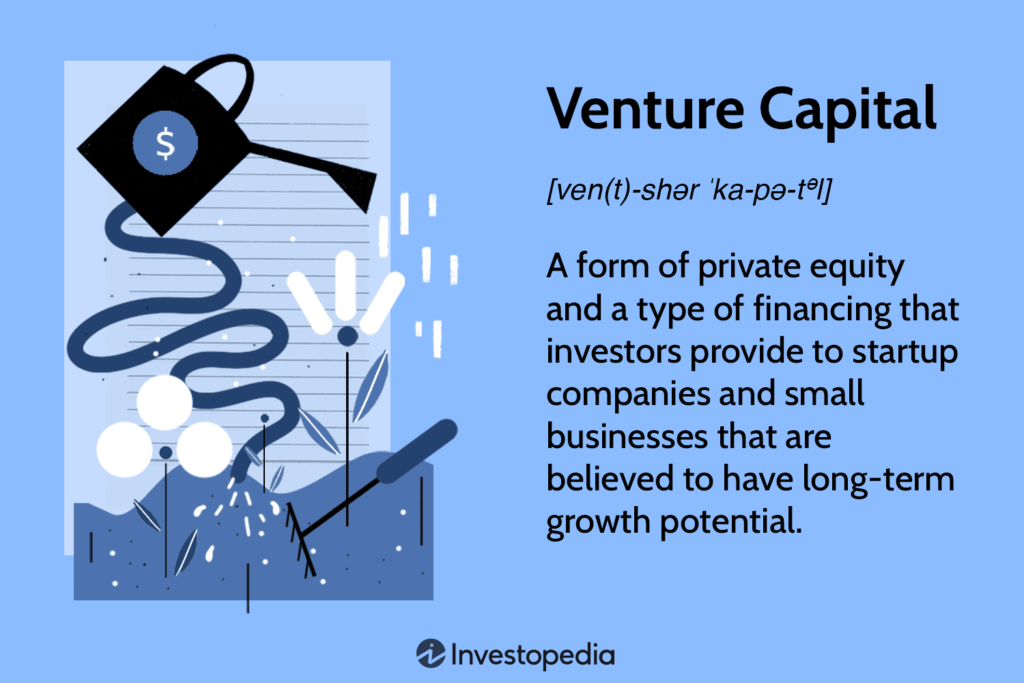
In the world of business and finance,
the acronym VC frequently pops up, but what does it actually stand for? The term VC stands for Venture Capital, and it refers to a crucial aspect of funding for many startups and emerging companies. Here’s a detailed look at what venture capital is, who venture capitalists are, and why their role is pivotal in the business ecosystem.
What Is Venture Capital?
Venture Capital (VC) is a type of private equity financing provided by investors to early-stage, high-potential, and growth-oriented companies. These are typically startups that have a unique business idea or technology but require substantial capital to scale their operations, develop their products, or enter new markets.
Who Is a Venture Capitalist?
A Venture Capitalist (VC) is an individual or firm that invests in startups and small businesses with high growth potential in exchange for equity, or partial ownership, of the company. VCs are not just financiers; they often provide strategic guidance, industry connections, and business expertise to help these young companies succeed.
Key Characteristics of Venture Capital
- High-Risk, High-Reward Investment: Venture capital involves significant risk, as many startups may fail. However, the potential rewards can be substantial if the startup succeeds and grows rapidly, leading to significant returns on the investment.
- Equity Stake: In exchange for their investment, VCs receive equity in the company. This means they own a portion of the company and benefit from its success in the form of capital gains if the company is sold or goes public.
- Active Involvement: VCs often take an active role in the companies they invest in, offering mentorship, industry insights, and strategic advice. This involvement helps guide the startup through its critical early stages and improves its chances of success.
- Focus on Innovation and Growth: Venture capitalists typically invest in companies that are innovative, have a unique business model, or are in rapidly growing industries. They look for opportunities where their investment can significantly impact the company’s trajectory.
Why Do Startups Seek Venture Capital?
Startups often turn to venture capital for several reasons:
- Capital Infusion: Startups need significant funding to develop products, expand operations, and reach the market. Venture capital provides the necessary financial resources to support these goals.
- Strategic Guidance: Beyond just money, VCs offer valuable business acumen, industry connections, and strategic direction, which can be instrumental in navigating the challenges of scaling a business.
- Validation: Securing venture capital can be a strong signal to other investors, partners, and customers that the company is on the right track and has potential for significant growth.
Key Takeaways
- Venture Capital (VC) Definition: Venture Capital refers to the investment provided to early-stage companies with high growth potential in exchange for equity.
- Role of a Venture Capitalist (VC): A VC is an investor who provides funding to startups, often taking an active role in helping the company grow and succeed.
- Purpose of VC Investment: Startups seek VC funding to gain the capital needed for growth, benefit from strategic advice, and achieve market validation.
In summary,
venture capital plays a pivotal role in the startup ecosystem by providing essential funding and support to innovative companies. By understanding what VC stands for and the role of venture capitalists, you can better appreciate the dynamics of early-stage business financing and the impact it has on bringing groundbreaking ideas to life.





